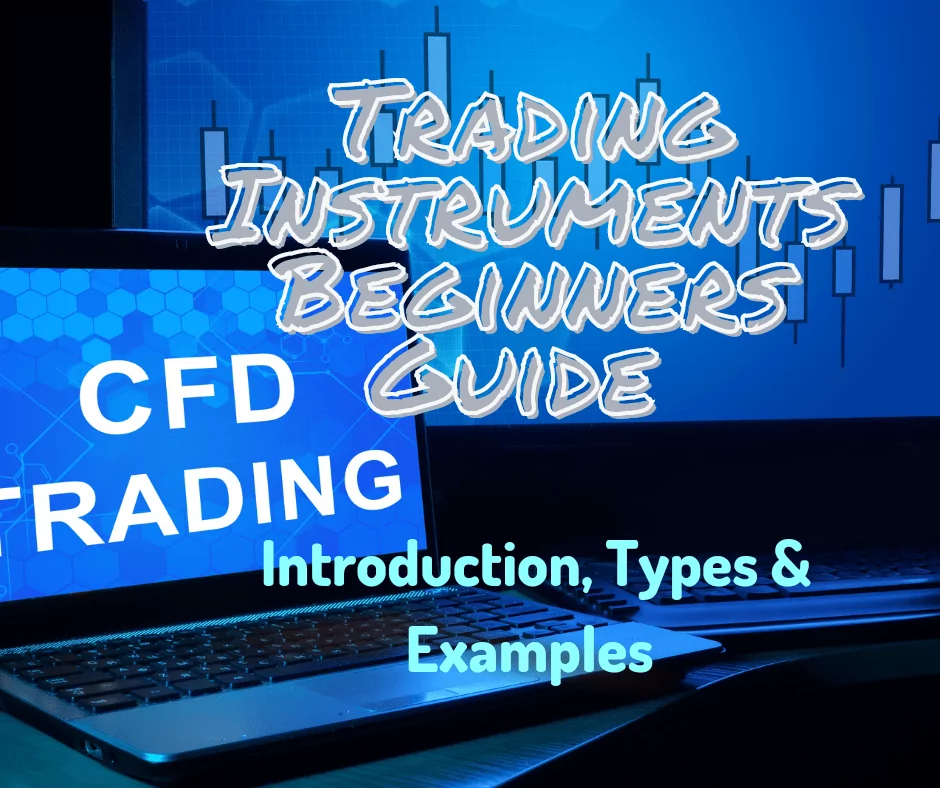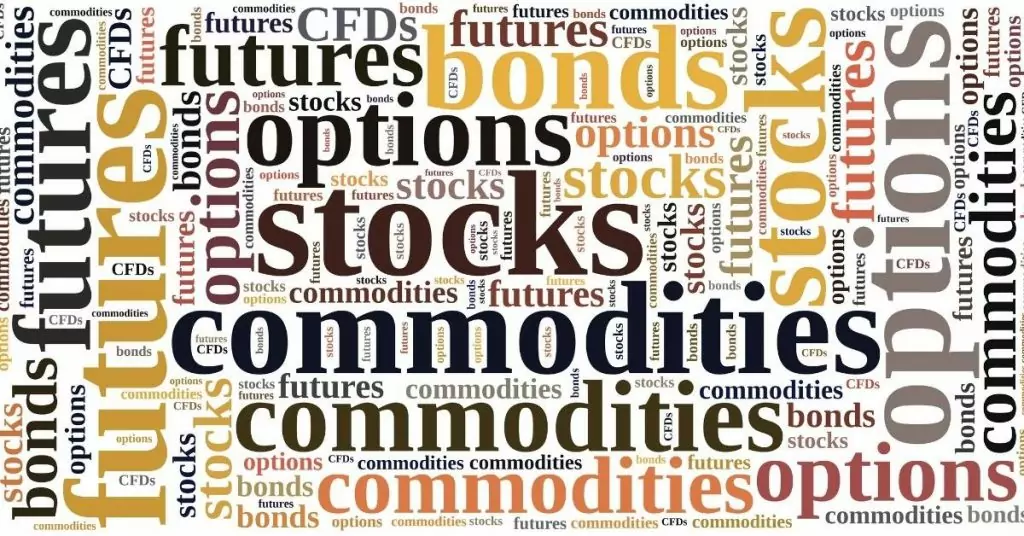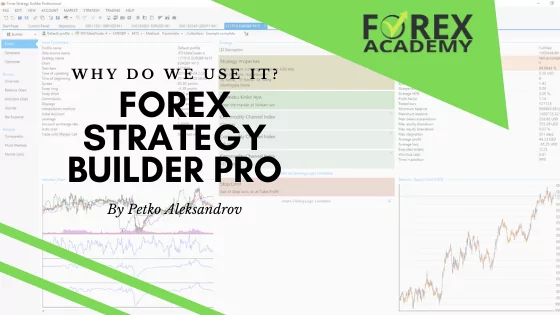Trading instruments are the different types of securities that you can trade. Trading instruments belong to different markets. For example, CFDs are trading instruments. Stocks are also trading instruments.
Some people like to trade currencies. Others like to trade metals, such as gold. Traders refer to both assets and contracts when they talk about trading instruments. For example, a futures contract is a trading instrument. Similarly, gold is also a trading instrument, even though it’s a tangible asset not a contract.
All of the markets that you can trade are different in many ways. They behave differently. This is why so many traders usually have a preference for one or the other. For example, someone who likes to trade options might not be as enthusiastic about trading stocks.
Trading Instruments Attract People with Different Goals
Some trading instruments are more popular than others. For example, stocks are extremely popular. Many people immediately think of stocks whenever they think of securities.
This is because trading instruments attract people with different goals. Most people who purchase stocks want an asset that will pay them dividends over time. They also want an asset that will increase in value over time. Stocks provide that.

Trading instruments such as gold, stock indices and forward contracts can be bought and sold almost anywhere in the world. However, because of their prices some are more within the reach of members of the public than others. For example, it’s relatively easy to access the stock market in any country.
Many consumers own a few shares of a company that they like. They may have observed the company for a while and feel confident in its management and in other aspects of fundamentals. However, not as many people purchase or sell gold on a regular basis.
Gold and silver are tangible assets, unlike contracts. However, many people are more likely to trade futures contracts than an asset like silver for several reasons. One of them is the price of silver and other precious metals. Another is the convenience of trading a contract.
Some people are more likely to think of precious metals as long-term investments. For example, when they purchase gold they may do so to hold it for decades. However, precious metals are traded daily by individuals who benefit from price fluctuations in these assets.
Markets Behave Differently
Trading instruments aren’t exactly the same in name or nature. They differ in value. Some, like options, differ in longevity. They even differ in terms of access.
For example, a futures contract is a trading instrument. Similarly, gold is also a trading instrument, even though it’s a tangible asset not a contract. However, these and other markets that you can trade are different in many ways. They stick to different rules and change prices at different paces.
This is why so many traders usually have a preference for one or the other. For example, someone who likes to trade options might not be as excited about trading stocks.
The Most Popular Trading Instruments
Some trading instruments are more popular than others. For example, stocks are very popular. The Forex or foreign exchange market is also very popular.
Many people only think of stocks whenever they think of securities. So, the popularity of an asset will affect its trading volume. Stocks, ETFs and futures contracts are all traded every day. Higher volumes of these three trading instruments are traded every day than those of currency derivatives or metals.
Safest Trading Instruments – Stocks
Stocks are traded on stock exchanges around the world. Each country has its own stock exchange. A stock or share gives you ownership in a publicly-traded company. You can sell your rights to ownership by selling your stocks.
Similarly, when you purchase a share, you become a shareholder in the company. Employees are sometimes given stocks in a company as a part of their pay package. Restrictions on selling these shares may sometimes apply.
Main Stock Sectors
All stocks aren’t the same in terms of their sector. This is why some traders stick to stocks that are in a field that they understand. For example, they may focus on trading energy stocks. This is because most stocks in the area tend to be alike in the way that they behave.
Some traders focus on healthcare stocks. For example they may only buy and sell stocks from companies that operate private hospitals, buy and sell medical disposables or engage in other activities that are related to health care.
Similarly, some traders focus on financials. So, for example, they may buy and sell stocks of credit card issuers. They may also trade stocks of investment houses, credit unions and other financial institutions.

Other popular categories of stocks include real estate and utilities. These sectors are popular because the products and services that they provide are always in demand. As long as good managers run companies in sectors such as utilities they will usually be profitable. Once they cover these fundamentals, traders can focus on technical aspects of trading.
Preference Shares versus Common Stocks
You can categorize stocks as preference shares or common stocks. These trading instruments give you a level of ownership in a company. However, people who own common stocks lose more when companies dissolve.
Those who own preference shares are more likely to get something back. They also get dividend payments before buyers who own common stock. Most of the time, traders have a preference for one or the other. Despite that, many traders regularly enter more than one market in order to manage risk.
ETFs
ETFs are Exchange-Traded Funds. These trading instruments are baskets of assets. You can think of it like a basket of goods. For example, just as a basket of goods would have bread, cheese and milk, ETFs would have a mix of different assets.
For example, an ETF might consist of a mix of different metals. Another ETF might not have any metals. Instead, that particular ETF might have a combination of technology stocks.
The entire basket is traded on the stock exchange. You will always trade the entire basket as a single unit. Each ETF tracks the composite value of the assets that it owns.
Futures Contracts
Futures contracts are real contracts, just as their name suggests. They contain the information that’s standard in other contracts. This includes price, place of delivery and quantity.

A futures contract is an agreement between two parties. It states that one will buy something from the other at a specific price, at some point in the future. Generally, you can trade crude oil and corn with futures contracts.
Forward Contracts
Forward contracts are a lot like futures contracts. However, there are a few differences. For example, you can change forward contracts. On the other hand, as mentioned previously, futures contracts are standardized.
Traders also like forward contracts for another reason. They use these contracts for hedging. Traders who buy forward contracts expect the price of the commodity to increase by the purchase date. Generally, they want to lock in the best price.
Options
Options and futures contracts both consider what can take place in the future. However, there’s a significant difference. Options don’t force you to buy or sell.
Options give you a choice. A date and price are agreed on. However, while you have the right to buy or sell, you don’t have to. With these trading instruments, you’re never obliged to buy or sell an asset.
Currency Derivatives
When people think of futures contracts, they often think of a tangible asset. The same is true for options. For example, they might think of an option that gives someone the right to buy wheat at a particular price. However, you can have the option of buying or selling currencies as well.
Currency derivatives are options, futures and forward contracts that are related to currencies. Forex traders usually trade these. So, they buy and sell currency derivatives based on price fluctuations.
Trading Instruments for Hedging – Metals
Gold and other metals are popular because they help to hedge against inflation. Gold also helps consumers to hedge against currency devaluation. Traders take long or short positions on the prices of the metals.

Traders also like to trade metals because the market has high liquidity. You can use lots of tools with metals. If you’re a technical trader, trading metals is similar to trading other securities.
Contract for Differences
A contract for differences (CFD) is often used in sectors such as energy. CFDs let you trade the direction of securities over very short time spans. So, they’re very popular with commodities traders and in the Forex market.
Generally, when you trade CFDs you place a price bet on whether the underlying security will rise or fall in value. If you expect the price of the underlying asset to rise in value, you’ll buy the CFD. On the other hand, if you expect the price of the underlying security to fall, you’ll sell the CFD.
People CFDs on margin. The United States doesn’t allow the market. These trading instruments are especially popular with traders that understand how the renewable energy sector works.
Are trading instruments regulated?
Regulations govern stocks and several traditional trading instruments. However, not all trading instruments are regulated. For example the CFD market is not fully regulated. In fact, CFDs aren’t allowed in the United States. Traders should always do their due diligence before choosing any of these trading instruments.
Traders experience more risk when a market isn’t regulated. For example, crypto doesn’t have a complete regulatory framework as yet. However, most trading instruments, including crypto receive some level of oversight from the Securities and Exchange Commission (SEC).
The Commodities Futures Trading Commission regulates options and futures. Oversight protects traders from manipulation. Regulation also protects traders from fraud.
Examples of Trading Instruments
To review what we’ve discussed in this article, you can choose from several types of trading instruments, such as metals and options. Examples of metal trading instruments include gold, silver and platinum. Regulations govern most of these trading instruments.

You can also choose from many other trading instruments such as options, forward contracts and CFDs. People trade all of these examples of trading instruments often. However, some markets are larger than others. The Forex market is the largest in the world, followed by:
Stock indices
Equities
Commodities
You can use software and tools to check all of these trading instruments. Learning to do that helps you to profit. Investing in your education as a trader is essential. It helps you to make more money and lose less on trades.
The Bottom Line
Whether you prefer to trade silver or crypto, you can make a profit. It’s important to be as educated as possible about the strategies that work when you’re trading different types of markets. If you’re familiar with a particular type of instrument, it gives you a leg to stand on when you shift to another market.
However, you’ll have to learn all about those new trading instruments and develop fresh strategies for them. To save time, you can also use social trading to copy what another trading is doing. You can do that as you study the new market but it also comes with risks.
However, you can lose money with every type of market. You can’t tell the future in trading. You can lose money even after you’ve backtested your strategies hundreds of times.
Some trading instruments carry a lot of risk. For example, some people have left the crypto market after they have lost everything. There are steps that you can take to reduce the risk of this but they require a lot of discipline.
Trained traders understand how feelings can cause them to lose money. However, if they don’t exercise control over what they feel, they can still lose money. Knowledge isn’t everything. You must apply what you know and remove your emotions from each market.



